Mr. Children, commonly referred to by their contracted nickname "Misu-Chiru" (ミスチル), are a Japanese pop rock band formed in 1989. Consisting of Kazutoshi Sakurai, Kenichi Tahara, Keisuke Nakagawa, and Hideya Suzuki, they made their major label debut in 1992. They are one of the best selling artists in Japan and one of the most successful Japanese rock artists, having sold over 75 million records and creating the "Mis-chil Phenomenon" (ミスチル現象) in the mid-1990s in Japan. They held the record for the highest first week sales of a single in Japan for 15 years, with 1.2 million copies of their 10th single "Namonaki Uta" (名もなき詩), have 30 consecutive number 1 singles, replaced Glay as the all-male band to have the most number 1 albums on the Oricon charts, and won the Japan Record Award in 1994 for "Innocent World" and in 2004 for "Sign". As of 2012, Mr. Children has published fifteen original studio albums and 34 physical singles, along with five compilations, a live album, and fifteen home video releases.
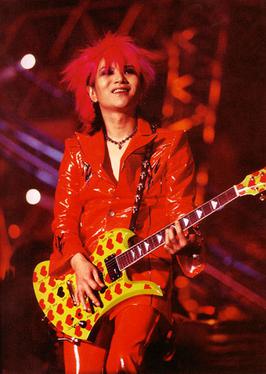
Hideto Matsumoto, known professionally as Hide, was a Japanese musician, singer, songwriter, and record producer. He achieved international fame as the lead guitarist of the rock band X Japan from 1987 to 1997 and a solo artist from 1993 onward. He also formed the United States-based rock supergroup Zilch in 1996.

Tomoaki Ishizuka, known exclusively by his stage name Pata, is a Japanese musician. He is best known as rhythm guitarist of the visual kei rock band X Japan. He joined the band in 1987, stayed with them until their dissolution in 1997, and rejoined when the band reunited in 2007.

Blue Blood is the second studio album by Japanese rock band X Japan, then known as simply X. It was released on April 21, 1989, by CBS/Sony as the band's major label debut. Blue Blood sold more than 700,000 copies, reached number 6 on the Oricon chart and stayed on the chart for more than 100 weeks. The album's singles would also reach the top five on the chart. In 2007, Rolling Stone Japan ranked Blue Blood number 15 on their list of the "100 Greatest Japanese Rock Albums of All Time".

Dahlia is the fifth studio album by Japanese rock band X Japan, released on November 4, 1996, by Atlantic Records. It is the band's last album before breaking up the following year, and the last to feature new work by guitarist hide, due to his death two years later. The album is composed largely of ballads, with only a few tracks retaining the band's heavier musical traits seen on previous releases. It topped the Oricon chart and stayed on the chart for only 15 weeks, but managed to sell over half a million copies. Seven, nearly all, of the album's songs were released as singles, most of which also topped the singles chart and sold well.
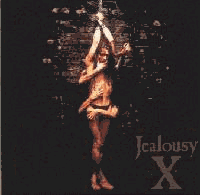
Jealousy is the third studio album by Japanese heavy metal band X Japan, then known as simply X. The album was released on July 1, 1991, by Sony, as the band's second major label release. Jealousy is the band's best-selling album, having sold more than one million copies, it topped the Oricon chart and stayed on the chart for 50 weeks. The album's singles would also reach the top three on the chart. It is their last album under the name "X", before changing to "X Japan", and the last to feature Taiji on bass, who would be replaced by Heath.

The discography of the Japanese heavy metal band X Japan consists of five studio albums, six live albums, one remix album, eleven compilations, one soundtrack album, 23 singles, and around 22 live video recordings.

"Pink Spider" is the ninth single by Japanese musician hide, the second to bear the hide with Spread Beaver name, released on May 13, 1998, eleven days after his death. It debuted at number 1 on the Oricon Singles Chart and was the 11th best-selling single of the year, being certified Million by the RIAJ. It was also named "Song of the Year" at the 13th Japan Gold Disc Awards.
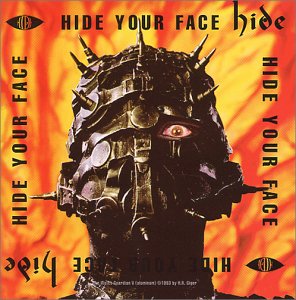
Hide Your Face is the debut album by Japanese musician hide, released on February 23, 1994. It reached number 1 on the Oricon Albums Chart and was certified Double Platinum by the RIAJ for sales over 500,000 copies. It was named one of the top albums from 1989-1998 in a 2004 issue of the music magazine Band Yarouze.
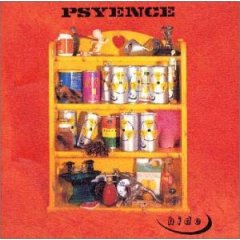
Psyence is the second album by Japanese musician hide, released on September 2, 1996. It topped the Oricon Albums Chart and was certified double platinum by the RIAJ for sales over 500,000 copies. The album was re-released on the Japan only format SHM-CD on December 3, 2008.
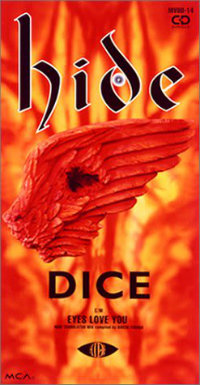
"Dice" is the third single by Japanese musician hide, released on January 21, 1994. It reached number 6 on the Oricon chart. The B-side is a remix of his previous single "Eyes Love You". The single was certified Gold by the RIAJ in February 1994, and Platinum in February 2020 for sales over 250,000.
"Tell Me" is the fourth single by Japanese musician hide, released on March 24, 1994. It reached number 4 on the Oricon Singles Chart. The B-side "Scanner " is a different version of "Scanner" from Hide Your Face, as it features vocals by Ryuichi from Luna Sea. The single was certified Gold by the RIAJ in April 1994, and Double Platinum in February 2020 for sales over 500,000.
"Misery" is the fifth single by Japanese musician hide, released on June 24, 1996. It reached number 3 on the Oricon chart. It was certified gold by RIAJ in July 1996. On May 2, 2007, the single was re-released with a slightly different cover. On August 4, 2010, it was re-released again as part of the second releases in "The Devolution Project", which was a release of hide's original eleven singles on picture disc vinyl.
"Beauty & Stupid" is the sixth single by Japanese musician hide, released on August 12, 1996. It reached number 4 on the Oricon chart. It was certified gold by RIAJ in December 1998. On May 2, 2007, the single was re-released with a slightly different cover. On August 4, 2010, it was re-released again as part of the second releases in "The Devolution Project", which was a release of hide's original eleven singles on picture disc vinyl.
"Hi-Ho"/"Good Bye" is the seventh and only double A-side single by Japanese musician hide, released on December 18, 1996. It reached number 8 on the Oricon chart.

"Rocket Dive" is the eighth single by Japanese musician hide, the first to bear the hide with Spread Beaver name, released on January 28, 1998. It reached number 4 on the Oricon Singles Chart and was the 33rd best-selling single of the year. It has been certified double platinum by the RIAJ for sales over 500,000 copies.
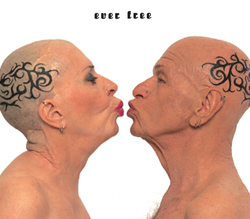
"Ever Free" is the tenth single by Japanese musician hide, the third to bear the hide with Spread Beaver name, released on May 27, 1998. It debuted at number one on the Oricon chart, replacing his previous single "Pink Spider", and was the 23rd best-selling single of the year and certified double platinum by the RIAJ.
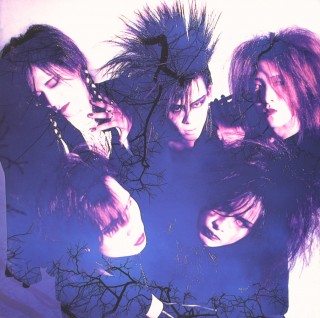
Luna Sea is the debut studio album by Japanese rock band Luna Sea, released on April 21, 1991, by Extasy Records. It sold over 30,000 copies by July 1992. After reuniting in 2010, Luna Sea re-recorded the whole album and released it on March 16, 2011, through HPQ.

Psyence a Go Go is a live album by hide, released on March 19, 2008. It contains a full-length concert, from his 1996 tour of the same name, recorded on October 20, 1996, at the Yoyogi National Gymnasium. The album reached number 18 on the Oricon chart.

"50% & 50%" is the second single by Japanese musician hide, released on August 5, 1993. It reached number 6 on the Oricon chart. His first single "Eyes Love You" was released on the same day. Both singles' covers are identical except; "50% & 50%" is red, whereas "Eyes Love You" is green. They form a 3D picture when they are placed side by side. It was certified gold upon release by RIAJ.















